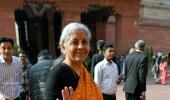The relationship between the US and India has been very productive, in particular on the trade and technology front, and 2023 can be considered the best year historically for bilateral ties, according to a former top American trade official.

Arun Kumar, an Indian-American, who served as the assistant secretary of Commerce for Global Markets and director general of the US and Foreign Commercial Service (USFCS) during the Obama administration, said this during an interview with PTI in Washington.
“Looking back on 2023, it was a very productive year for the US-India relationship, by many accounts the best year historically,” he said.
Currently a managing partner of Celesta, Kumar most recently served as the chairman and CEO of KPMG in India.
“The relationship is on a strong upward trajectory. This is backed by numbers as well. Trade doubled over the last eight years to a level of $190 billion in 2022. Major commitments were made by US companies in India – from Apple to Micron,” he said.
Following the Covid-19 pandemic, when remote working across the globe became well-accepted, there was a significant increase in the activities of global capability centres based in India, he said.
Both countries seemed to have found an unprecedented congruence of views in a move to make onshore, be it the Modi government's “Make In India” or the Biden administration's support of advanced manufacturing in America, to contend with tumult in global supply chains and China's economic rise, Kumar added.
“The optical high point in 2023 undoubtedly was the state visit of Prime Minister Narendra Modi to Washington in June.
"This was surrounded by a steady drumbeat of activities advancing the relationship,” he said.
On areas of alignment between the two countries, Kumar said that from a geoeconomics point of view, India and the US are in generally good spots relative to the rest of the world.
The US growth rate has bounced back to pre-Covid levels, unlike in Europe and China where this has not happened, Kumar said, adding that India's growth rate has picked up, exceeding many estimates, and is among the fastest-growing large economies.
Inflation pressures seem to be easing in both economies, he said.
Kumar said both countries today share some important points of view that result in economic alignment. COVID-19 – and geopolitical tensions – brought into focus for both countries the need for resilience as opposed to only efficiency or cost optimisation in supply chains.
They both share a desire to boost manufacturing, for jobs, skills and strategic reasons, he further said.
With over a quarter of the world's manufacturing being based in China, the need for supply chain diversification brings opportunities for manufacturing to India.
The quality of India's manufacturing capabilities has been steadily advancing and with these kinds of operations, this trend will accelerate, Kumar said.
“Beyond the bilateral relationships, increased alignment was promoted through important multilateral initiatives where both countries have prominent roles.
"The Quad configuration began taking on more of an economic dimension.
"Knowledge sharing and capacity building initiatives were launched in infrastructure, connectivity, technology and financing,” he pointed out.
Referring to the launch of the Indo-Pacific Economic Framework (IPEF) initiative in May, Kumar said it aims to advance resilience in supply chains, promote clean energy and sustainability, and advance capacity building in a range of areas.
The lofty goal is to promote cooperation, stability, prosperity, development, and peace within the region, he added.
“The I2U2 (India, Israel, the US and the UAE), a framework of four countries working together on economic issues, is worth noting as an example of US-India cooperation.
"This may temporarily take a back seat considering the current Middle East situation.
“This unique grouping of countries identifies bankable projects with a particular focus on joint investments and new initiatives in water, energy, transportation, space, health, food security, and technology,” Kumar said.
Kumar, who is active in the technology field, said a very important development to note is the rising conviction that technology will play a defining role in deepening the US-India partnership.
The Initiative on Critical and Emerging Technology (iCET) launched in January 2023 is a major milestone in US-India relations.
The plan is to mobilise governments, businesses, and academic institutions to collaborate to accomplish the strategic technology partnership, he told PTI.
The stated goal is for the United States and India to foster an open, accessible, and secure technology ecosystem, based on confidence and trust that reinforces our shared values and democratic institutions.











 © 2025
© 2025